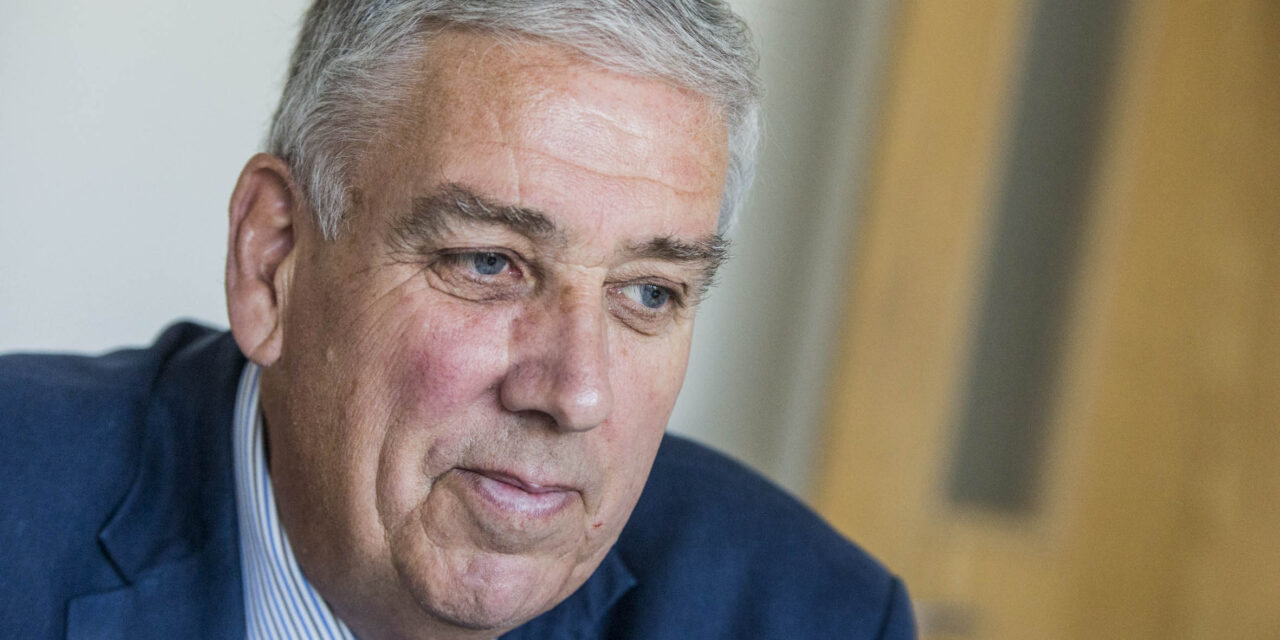The “Cummings effect” has resulted in some people thinking they can do “whatever they like” and has made policing North Wales more difficult, the region’s Crime Commissioner has claimed.
Prompted by fears that “overstretched” officers are unable to answer some reports of people potentially breaking lockdown regulations, Arfon Jones described Dominic Cummings’ “irresponsible actions” – having driven 260 miles from London to Durham during the coronavirus lockdown – as “driving a coach and horses through legislation,” while remaining critical of the “timid fudge” in terms of the level of fines in Wales.
The North Wales Police and Crime Commissioner’s comments were prompted by a former county councillor on Anglesey who’d raised concerns that the force was unable to deploy officers to reports that a group of campers were chasing sheep with their dogs near the popular Porth Dafarch bay on Holy Island.
Such claims, Jeff Evans told the Local Democracy Reporting Service, have been further reinforced by other similar incidents that police were unable to attend in the Holyhead area, including a group of what were thought to be tourists fishing off Holyhead Breakwater.
There have long been concerns that several second home owners and holidaymakers have been visiting the region despite the lockdown.
On Sunday Holy Island councillor, Dafydd Rhys Thomas, claimed that he personally encountered a family of eight, thought to have travelled from the midlands, seeking directions to South Stack.
Having been made aware that other local people had also been unable to summon officers to such reports, meanwhile, Mr Evans said that he was “saddened” and “frustrated,” although not wishing to personally criticise police.
Stressing that his views were not intended to criticise the force, Mr Evans accepted they officers “overworked and undermanned” but suggested that public protection staff from local authorities or other public bodies could be drafted in to support with lockdown breaches.
Superintendent Richie Green, of North Wales Police, thanked the public for their support during these extraordinary times, adding that they took a “pragmatic approach” to all calls, with each “subject to an assessment on the basis of threat harm and risk.”
Arfon Jones, meanwhile, noted that he “sympathised,” in light of the continuing influx of visitors to Wales, despite the Covid-19 restrictions that remain in place.
But a day after with Arfon MP Hywel Williams claimed that he continues to be “inundated” with emails from constituents, “furious” at the behaviour of both Mr Cummings and the Prime Minister for “irresponsibly defending” his special advisor, Mr Jones was just as steadfast.
“Jeff Evans is right to suggest that this is not just a matter for the police because the force does not have the capacity to check every single vehicle travelling in North Wales, especially when there are other great demands on policing as well as coronavirus.
“The confusion has been caused in the first instance by the Prime Minister Boris Johnson for easing the restrictions more liberally in England and then compounded by his advisor, Dominic Cummings, who has got away with driving a coach and horses through the legislation.
“His excuse for the trip to Barnard Castle and suggesting it was okay to drive with possibly defective eyesight was plain irresponsible, especially with his child and his wife in the car.
“As a result of the Cummings effect, people think they can do whatever they like and that has made policing North Wales even more difficult.
“On top of that, the Welsh Government have failed to properly increase the fines in Wales to a level that would act as a real deterrent.
“Instead they came up with a timid fudge which means you have to be caught six times before being fined the maximum amount.”
In late May, the Welsh Government confirmed that the maximum penalties for breaching lockdown had risen to £1,920, despite criticism that the increase did not go far enough.
There continues to be calls for Wales to adopt a similar structure to England, where the first penalty stands at £100, rather than £60, and doubling for each successive offence to a maximum of £3,200.










